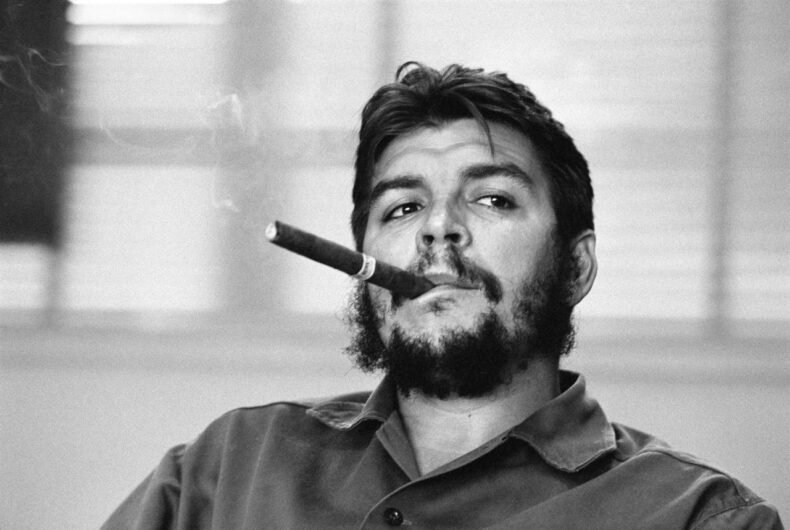Today marks the 94th birth anniversary of Cuban revolutionary, guerilla leader, and Marxist, Che Guevara.
Guevara’s face is much more recognized among ordinary people than his works. This is a result of the high use of his image on commodities such as T-shirts, cups, souvenirs, etc. Yet, the academics, world leaders, activists, and students still consider him an icon of the revolution.
This article gives a brief on the leader’s life and remembers his deeds.
Early Life of Che Guevara
Che Guevara or Ernesto Guevara de le Serna was born in 14th June,1928 in Rosario, Argentina. He belonged to an elite family as his father had a ship-building business. Che spent most of his childhood hours with his mother. It was his mother’s ideals of social justice which would play a huge role in his later life.
Che was a prodigy. He had mastered playing chess at the early age of 10 and was a heavy reader. Even before becoming a teenager, he had come across the writings of Karl Marx, Freidrich Engels, and Sigmund Freud.
As a school teen, Guevara was confident and challenging. Suffering from asthma did not stop him from excelling at sports. He had built his political opinions in school only and was vocal about it. Later in life, Guevara stated, “A man at 15 already knows what he wants to die for and is not afraid of giving his life if he has found an ideal which makes the sacrifice easy.”
After school, Che went to study medicine. He finished his medical course of 6 years, in just three. He used to spend most of his time with university students instead of his classmates. This was because his political and philosophical knowledge was matched by only university students.
Yet, Che did not participate in any forms of protests or revolts. He once told a senior, “Go out in the streets so the police can hit us with their clubs? Nothing doing. I’ll go and demonstrate only if you give me a gun.”
The Motorcycle Diaries
It was his journey to North Argentina that changed his idea of revolution. There he witnessed poverty, starvation, and illiteracy upfront. He documented his journey in his diary which was later published as “The Motorcycle Diaries”

Before reaching Cuba, Guevara had been to the states of Bolivia and Peru. In Bolivia, he did not witness any form of proper revolution. According to him, the revolutionaries never spoke of the solutions to the problems but merely the effects of it.
On the other hand, in Peru, he was faced with disinterest and hostility. The Peru army kept a constant eye on him, making it impossible for him to influence the people there. It was in the nation of Guatemala that Guevara found grounds for revolution.
The president of Guatemala was Jacobo Arbenz who was of the communist party. Here, Che worked as a doctor and adapted the title of a revolutionary for himself. It is also here that Guevara identified capitalism and America at the root of poverty.
Cuban Revolution
After Guatemala, Che came to Cuba and met the exiled Cuban military officer, Fidel Castro. Castro had tried to bring a military coup against the Cuban government which held on to massive capital for the elite, creating poverty.
Fulgencio Batista was the president of Cuba at the time and was a tyrant himself. Castro and Guevara joined forces against Batista and built a guerilla army. The army was heavily skilled and mostly trained by Che. Impressed by Che’s leadership, Castro made him the second in command after him.
It is the efforts of Che and Castro that brought about the Cuban Revolution.
Cuba under Castro and Guevara
In New Cuba, Che became the Minister of Industries and was one of the only educated individuals in the government. He aimed at transforming the agrarian nation into an industrial one. The economy under Che fell tremendously but the literacy rate rose. Cuban literacy went up to 96%, still one of the highest in the world.
It was his decision to acquire nuclear weapons under the guidance of the USSR, leading to the Cuban Missile Crisis.
Soon, Che left Cuba to spread communist ideals in other parts of the world such as Congo and Bolivia. It was in Bolivia that he was captured and executed. His last words to his executioner were:
“I know you’ve come to kill me. Shoot, you are only going to kill a man.”
The Cuban leader has always been considered a grey area. His methods were brutal and hence many call him a murderer. On the other hand, there are people who see him based on his ideals and feel his strict discipline and violence were necessary for his cause. The debate is infinite just like the man’s ideas.
Che Guevara believed that man might lose his life but the idea of revolution is immortal and would live on even after his death.













